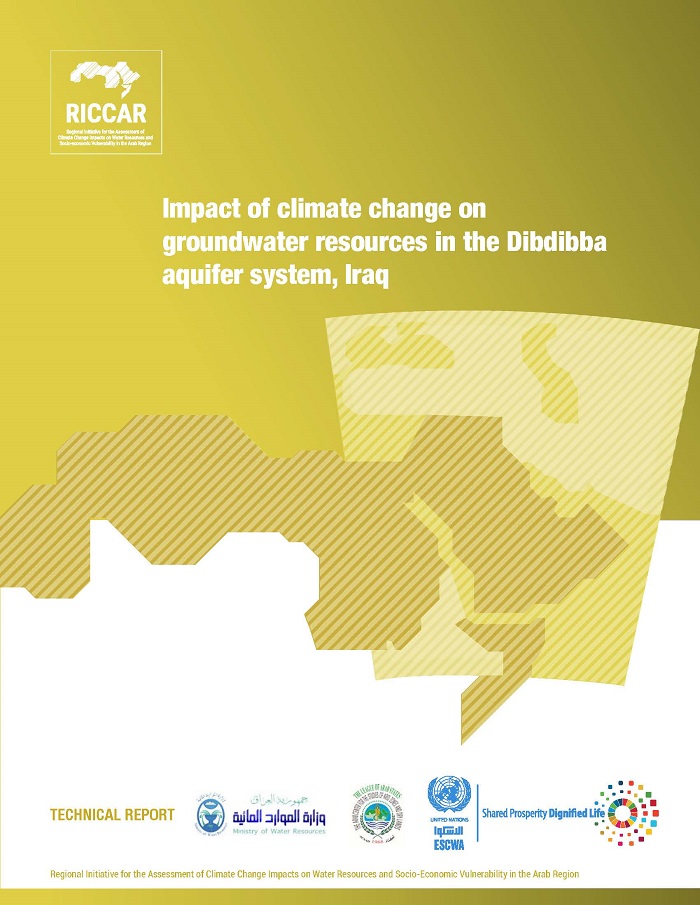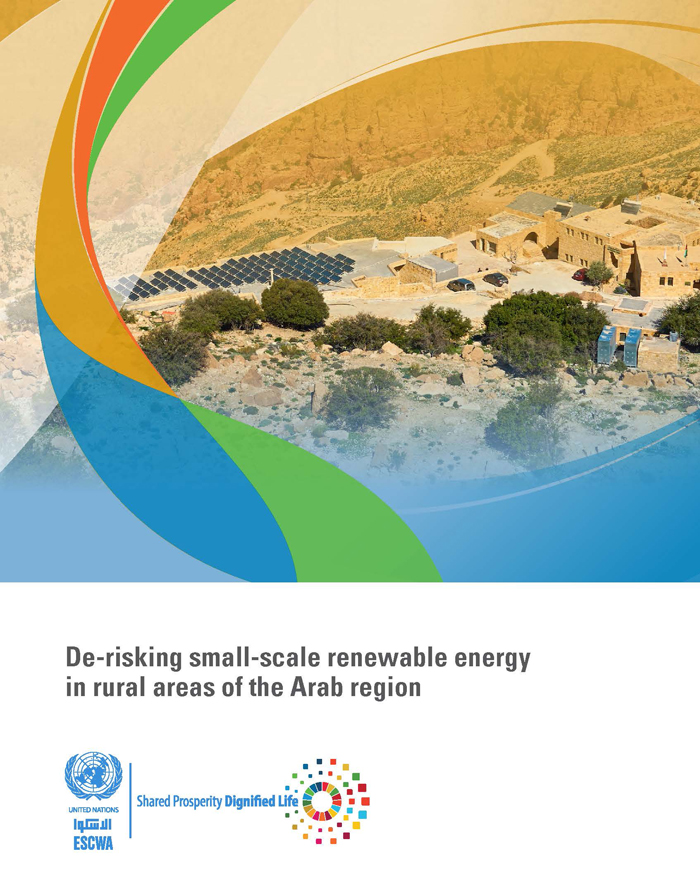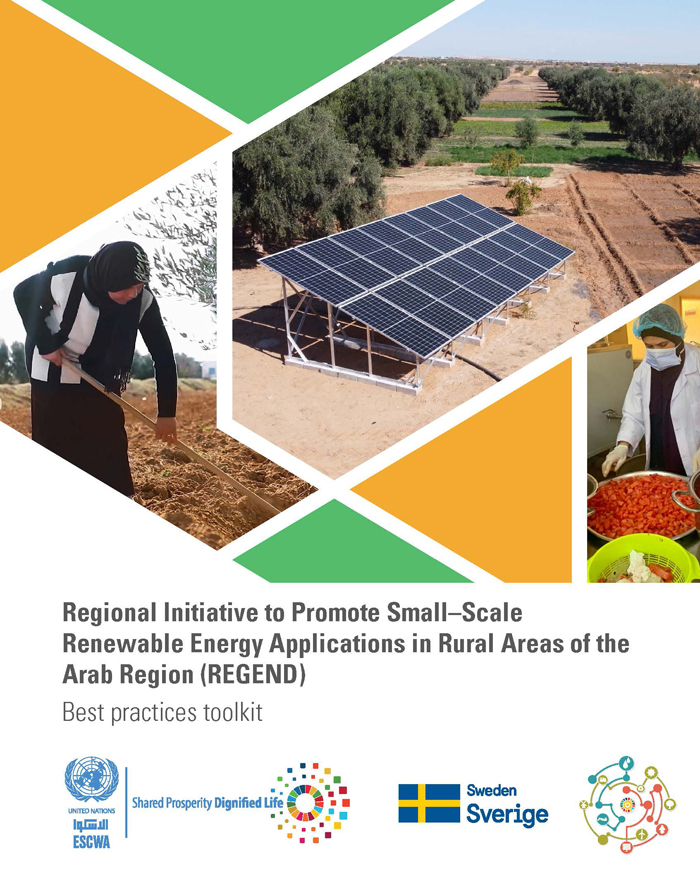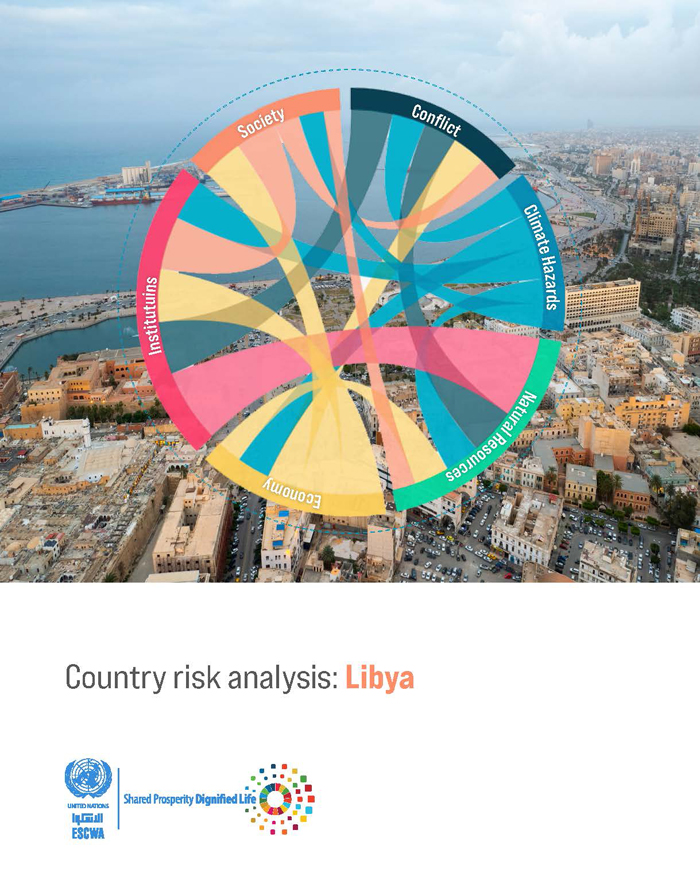
ESCWA Publication: E/ESCWA/CL1.CCS/2021/RICCAR/TECHNICAL REPORT.9
Country: Republic of Iraq
Publication Type: Reports & studies
Cluster: Climate Change and Natural Resource Sustainability
Focus Area: Climate change, Natural resource sustainability
Initiatives: RICCAR, Water Resources Management Tools, Advancing environment & energy statistics
SDGs: Goal 6: Clean Water and Sanitation, Goal 13: Climate Action
Keywords: Climate change, Groundwater, Technical cooperation, Agricultural production, Iraq
Impact of climate change on groundwater resources in the Dibdibba aquifer system, Iraq
March 2023
Groundwater is an important source of fresh water in the Arab region. However, groundwater aquifers are seriously threatened by overexploitation and pumping in inland basins and by seawater intrusion in coastal areas. The demand for groundwater in the region is rapidly increasing with population growth. Climate change is also imposing stress on water resources and raising the probability of severe drought occurrence, especially in the Arab Mashreq region. This region may experience severe drought periods in the near future. Therefore, it is crucial to examine how groundwater storage may change in response to both climate-driven and anthropogenic effects.
This technical report presents a detailed case study on the assessment of climate change impacts on groundwater resource use and availability in the Dibdibba aquifer in Iraq. It also includes an analysis of localized impacts of climate change on tomato yields. The Dibdibba aquifer was chosen by the Ministry of Water Resources in Iraq because it is a shallow aquifer that is highly affected by the precipitation variations that are expected as a result of climate change. It is also expected that the demand for groundwater will increase in this region, as it is an important agricultural area and tourist destination. The regional climate projections for the Mashreq Domain used to inform this report were produced by the Swedish Meteorological and Hydrological Institute (SMHI). This study was carried out as part of a project focused on water and food security under a changing climate context led by the Swedish International Development Cooperation Agency (Sida).
Related content
Climate change
, Natural resource sustainability
,
Groundwater is an important source of fresh water in the Arab region. However, groundwater aquifers are seriously threatened by overexploitation and pumping in inland basins and by seawater intrusion in coastal areas. The demand for groundwater in the region is rapidly increasing with population growth. Climate change is also imposing stress on water resources and raising the probability of severe drought occurrence, especially in the Arab Mashreq region. This region may experience severe drought periods in the near future. Therefore, it is crucial to examine how groundwater storage may change in response to both climate-driven and anthropogenic effects.
This technical report presents a detailed case study on the assessment of climate change impacts on groundwater resource use and availability in the Dibdibba aquifer in Iraq. It also includes an analysis of localized impacts of climate change on tomato yields. The Dibdibba aquifer was chosen by the Ministry of Water Resources in Iraq because it is a shallow aquifer that is highly affected by the precipitation variations that are expected as a result of climate change. It is also expected that the demand for groundwater will increase in this region, as it is an important agricultural area and tourist destination. The regional climate projections for the Mashreq Domain used to inform this report were produced by the Swedish Meteorological and Hydrological Institute (SMHI). This study was carried out as part of a project focused on water and food security under a changing climate context led by the Swedish International Development Cooperation Agency (Sida).



